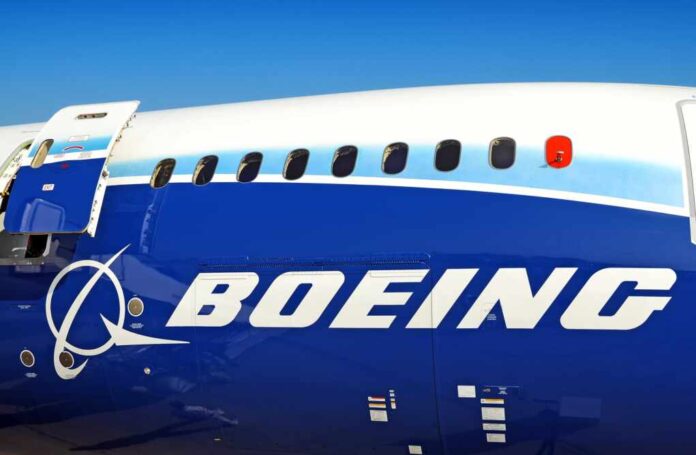
In a move purportedly addressing recent safety concerns, Boeing temporarily suspended its 737-related factory operations for a comprehensive “quality stand down.” This initiative comes in response to this month’s alarming incident involving an Alaska Airlines 737-9 MAX flight.
On January 5, a panel blew out midair during an Alaska Airlines flight, grounding all 171 Boeing 737 Max 9 aircraft equipped with a similar door plug. This event has spotlighted Boeing’s manufacturing processes, raising questions about prioritizing safety over speed and cost-effectiveness.
Boeing’s statement detailed plans for the Renton, Washington employees to engage in hands-on learning and collaboration, aiming to enhance quality and compliance. This training, scheduled to start on Thursday and extend to other factories over two weeks, is part of a broader strategy to address the systemic issues brought to light by the incident.
Boeing employees to undergo quality control training amid 737-9 MAX issueshttps://t.co/53GUAvMurzhttps://t.co/53GUAvMurz
— The Post Millennial (@TPostMillennial) January 24, 2024
Furthermore, Boeing’s proactive measures include inviting airline representatives to tour its plants and inspect its operating processes. This openness extends to a review of Spirit AeroSystems, a key supplier, and an independent evaluation led by a retired Navy admiral.
The National Transportation Safety Board (NTSB) is actively investigating the incident. Initial findings revealed that four bolts, essential for securing the door plug, were missing. This revelation aligns with allegations from a whistleblower who claimed that the bolts were not installed when Boeing delivered the plane. This assertion, if confirmed, could signify deeper issues within Boeing’s quality control system.
Reacting to the situation, Michael Whitaker, CEO of the Federal Aviation Administration (FAA), emphasized that the investigation focuses more on Boeing’s quality control processes than the design of the door plug.
Alaska and United Airlines have had to cancel numerous flights in response to the grounding. The CEOs of these airlines have expressed frustration and disappointment, with Alaska Airlines’ CEO Ben Minicucci notably criticizing Boeing for delivering new airplanes with such flaws.
Sen. Maria Cantwell (D-WA), chair of the Senate Committee on Commerce, Science, and Transportation, stressed the importance of prioritizing quality engineering and safety, announcing plans for hearings to investigate the root causes of the door plug blowout.
The FAA has imposed stringent production restrictions on Boeing’s factories and is tightening oversight. Any expansion of the 737 Max production has been put on hold until safety investigations are complete. The regulator’s stance is clear: safety must not be compromised.
In response to these developments, Boeing’s CEO, Stan Deal, acknowledged the disruptions caused to airline customers and expressed a commitment to bringing the airplanes safely back to service. He emphasized the importance of following the FAA’s lead and supporting customers throughout the process.
This incident represents another significant setback for Boeing, which is still recovering from the 2018 and 2019 crashes involving the 737 Max 8 jets. As the company strives to rebuild public trust, these latest events are a sharp reminder of the critical importance of uncompromising safety standards in the aviation industry.

























